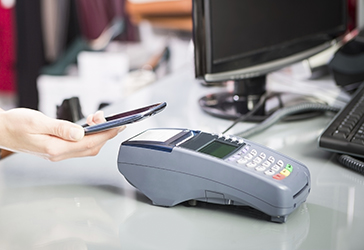
Identity theft remains a significant issue in the United States. According to the Identity Theft Resource Center, 278 million records were exposed in 2024, resulting from over 2,300 total data breaches.
In Q3 2024 alone, 812 data compromises were reported, with the following sectors hit hardest:
- Financial services: 29% of breaches
- Healthcare and hospitality: 18%
- Government: 4%
- Education: 6%
These figures highlight the growing threat and the need for individuals to protect themselves from identity theft, which can have serious consequences for daily life and finances.
Reducing the Risk of Identity Theft
Fortunately, there are practical steps you can take to reduce your chances of falling victim to identity theft. Many of these require little more than common sense and diligence.
- Carry only what you need: TransUnion recommends carrying only essential personal documents. Leave extra credit cards, birth certificates, passports, and Social Security cards at home unless absolutely necessary. This minimizes the risk of losing critical information if you are physically robbed.
- Shred important documents: Shred receipts, credit card offers, bank statements, and returned checks before disposing of them. Thieves often dig through trash to find personal information, so shredding documents eliminates this risk.
- Avoid receiving checks by mail: The Federal Trade Commission advises picking up new personal checks at your bank instead of receiving them through the mail to prevent theft.
- Opt out of prescreened offers: Visit OptOutPreScreen.com to stop receiving prescreened credit and insurance offers. Opting out reduces the chance that thieves will misuse your information.
Avoiding Scams
- Be wary of "urgent" calls or emails: Scammers often impersonate banks, utility companies, or credit card providers, claiming your account will be suspended unless you provide information. Legitimate companies will never ask for sensitive information like passwords or Social Security Numbers by phone or email. If in doubt, request that they send you a written notice.
- Monitor your accounts: Regularly review your bank and credit card statements for unauthorized transactions. Many scams rely on victims not checking their accounts frequently. If you notice suspicious activity, report it immediately.
- Watch for missing statements: If your credit card statement is late, contact your provider. It could be a sign that someone has stolen your mail to access your information. Opting for paperless statements can eliminate this risk.
Securing Your Information Online
- Use strong passwords:
- Create passwords that include a mix of letters, numbers, and symbols.
- Use passwords that are at least 12 characters long.
- Avoid using the same password across multiple sites. Once hackers crack one, they may attempt to access other accounts.
- Enable two-factor authentication: Two-factor authentication adds an extra layer of security by requiring a second verification step, such as a code sent to your phone.
- Beware of suspicious emails and links: Never click on links or download attachments from unknown email senders, even if the sender appears to be a friend or colleague. Their account could have been compromised.
- Secure your Wi-Fi: Use strong passwords for your home Wi-Fi network and avoid using public Wi-Fi for sensitive transactions. A virtual private network (VPN) can add another layer of security when using public internet connections.
Staying Vigilant in 2024
The rise in identity theft means vigilance is more important than ever. By following these precautions—carrying only necessary documents, shredding sensitive materials, monitoring your accounts, and practicing online security—you can significantly reduce your risk of becoming a victim. While no method is foolproof, these steps provide critical safeguards to protect your identity and financial well-being.





